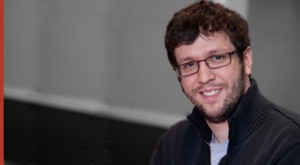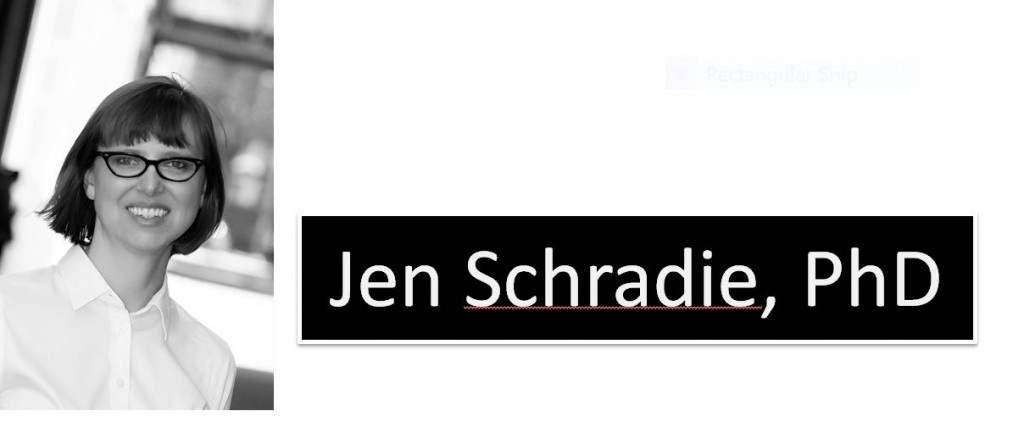Rather than whine any more about the dearth of social scientists at UC Berkeley who study digital society, I decided to start a speaker series through the Berkeley Center for New Media (BCNM) to bring them here. In the process, though, of reaching out to promote the talks, I was reminded of the strength of new media scholarship right here in our public ivory tower. In fact, a key component of this series is for students and faculty to present their research – whether a half-baked idea/work-in-progress for feedback or to practice a job or conference presentation.
Check out the Spring 2013 schedule below of “Digital Society in Context – New Media Research Workshop” sponsored by BCNM and the CITRIS Data and Democracy Initiative.
Contact me if you’d like to present your work:
All workshops generally meet on Tuesdays* from 12 noon to 1.30 and include light refreshments – at the BCNM Commons, 340 Moffitt, near the entrance to the Free Speech Café at Moffitt Library
Tuesday, March 19
Ingrid Dahlen Rogstad, PhD-candidate.
“Political Journalists’ Attitudes Toward Social Media”
Dahlen is a graduate student in political science at the Institute for Social Research/University of Oslo. She received her master’s degree in political science from the University of Oslo in 2010. Her dissertation concerns political communication and social media, i.e. how do social media affect political communication and the relationship between central political institutions and actors (including mass media and journalists).
Her talk will be based on her survey research with political journalists in Norway (n = 250). She asked about their use and attitudes towards social media. She is analysing the data through a cluster analysis and is grouping the respondents into five different groups which represent different ways of using, and looking at, social media.
Tuesday, April 9
Two Speakers – Scroll down
John – Song Pae Cho, Ph.D.
“Hooking Up ‘Gangnam Style’? The Internet as a Vector of Gay Class Conflict and Moral Anxiety in Post-IMF South Korea”
Spurred by the Korean singer PSY’s viral sensation, “Gangnam Style,” the Gangnam District of Seoul has become indelibly etched onto the minds of many people around the world. But what exactly is Gangnam Style? And how is that different from Gangbuk Style? In this talk, I provide one answer through examining the hook up culture of gay men in South Korea. Through the Internet, they can not only quickly and anonymously meet other gay men, they can also specify the type of men whom they want to meet, hailing their “ideal man.” More often than not, however, this “ideal man” hails from Gangnam, the richest district in Seoul. If so, how do gay men from Gangbuk, the older and more impoverished sister of Gangnam, negotiate the conflicts of gay class and morality on the Internet? In examining the hookup culture of Gangnam and Gangbuk gay men, this paper contributes to a broader understanding of the Internet’s role in transforming South Korea’s formerly vibrant gay and lesbian movement into an online consumer market and sorting sexual outlaws into class-differentiated neoliberal subjects, who must not only work but also work out, in order to remain desirable as erotic subjects.
John (Song Pae) Cho is an SSRC Postdoctoral Fellow for Transregional Research at UC Berkeley. After completing his PhD in socio-cultural anthropology at University of Illinois at Urbana-Champaign in 2011, he served as the Korea Foundation Postdoctoral Fellow at UC Berkeley. In fall, he will serve as the Soon Young Kim Postdoctoral Fellow in the Korea Institute at Harvard University. He is currently completing his book manuscript, Faceless Things: South Korean Gay Men, Internet, and Sexual Citizenship. His research has appeared in several journals, includingAnthropological Quarterly (2009), Journal of Sociolinguistics (2012), and GLQ (forthcoming).
Also on April 2
Lilly Nguyen, Ph.D. candidate
“Copying as Everyday Entrepreneurial Practice: The Social Worlds of Software Discs in Hanoi”
Copied software discs readily circulate in Vietnam. In light of the country’s recent entry into the WTO, these discs have come under increased scrutiny and criticism. Communist party leaders, software trade groups, and technology advocates increasingly demonize what most Vietnamese understand as an everyday affair. In spite of this rhetoric of piracy, copied software discs continue to circulate. In this talk, I describe the social world of software discs within shops along Hanoi’s commercial streets. Such copying is situated in the city’s history of trade streets. As a technical practice of transferring and circulating bits across storage devices, the artifacts of copying produce technological stability amid material breakdown. As an everyday social practice, copying comprises an important practice for knowledge formation. Thus, I argue that copying reproduces more than discs but produces stability among a trade network. This approach departs from normative frameworks of piracy that assume its illegality and illicitness. As such, this talk describes copying as a vital practice that produces and sustains work and knowledge within alternate digital economies. By thinking through copying as an everyday practice, this talk provides new insight into the ways that innovation discourses shape and often limit how we think of work, knowledge, and technology.
Lilly U. Nguyen is a Ph.D candidate at the Department of Information Studies at UCLA. Her research explores the cultural significance of information technology in global contexts, with a specific focus on Vietnam and the Vietnamese diaspora. Her areas of research interest include critical information studies, science and technology studies, and ethnography. Her research has been funded by the National Science Foundation, the Fulbright Program, and the US Department of Education’s Foreign Language and Area Studies Program. She previously received an M.Sc. in Media Communications from the London School of Economics and a B.A. in Political Economy from UC Berkeley.
Tuesday, April 23
Eve Shapiro, Ph.D.
“Gender Circuits: Bodies and Identities in a Technological Age”
Gendered bodies are shaped and reshaped by contemporary information and biomedical technologies. While contemporary cultural debates center on whether technologies are moving us closer toward utopian or dystopian lives, the lived experiences of individuals point to complex and contradictory processes. In this talk I explore whether and how new technologies are reshaping what it means to be a gendered person in contemporary society, and examine the complex intersections between gender ideologies, social scripts, information technologies, and embodied identities.
Eve Shapiro, Ph.D. is assistant professor of sociology at Westfield State University. She received her Ph.D. in Sociology from the University of California, Santa Barbara and has published in a number of journals including Gender & Society, Sexualities, and the Journal of Gay and Lesbian Social Services. Her recent book, Gender Circuits: Bodies and Identities in a Technological Age (Routledge 2010) examines whether and how new technologies are changing the gendered lives of cisgender and transgender individuals. Extending this Dr. Shapiro’s current research examines the myriad ways information technologies can be agentically used to reshape individual and community lives, particularly around gender and sexuality.
Tuesday, May 7
Youth, New Media and Social Reproduction
Based on in-depth interviews, focus groups, and surveys with Californian high schools students, the presentation addresses the multifaceted linkages between new media and social reproduction. The talk considers the feedback loops between forms of new media usage and offline social circumstances in a number of life realms relevant to young adults. Special attention is paid to the influence of ICT use on academic performance, college and career planning, and social relationships.
Jeremy Schulz is the Executive Director of the UC Berkeley Peder Sather Center for Advanced Study. He held an NSF-funded postdoctoral fellowship at Cornell University’s Center for Economy and Society from 2010 to 2012. He earned his PhD thesis in the Department of Sociology at the University of California, Berkeley. His research examines the influence of societal environments and cultural contexts on the ways in which Norwegians, the French, and Americans experience and organize family, work, and private life. His article, ‘Zoning the Evening’, received the 2010 Shils–Coleman Award from the American Sociological Association’s theory section. His current research examines the ways in which differently situated individuals handle different kinds of debt. He is particularly interested in stances toward debt tied up with ‘productive’ goods and services such as education and medical care and how these stances intersect with gender and social stratification. Previous publications contribute to theory, qualitative methods, sociology of ideology, and sociology of consumerism. His website is www.jeremyschulz.org. Email: jmschulz@berkeley.edu.
May 14
Sam Ford
Spreadable Media: Creating Value and Meaning in a Networked Culture
 How can we better understand how content circulates within contemporary networked culture? The collective decisions people make about whether to pass along content are profoundly reshaping the media landscape. Many content creators struggle with the growing prominence of grassroots audience practices, while an array of online communication tools have arisen to facilitate informal, instantaneous sharing. This environment offers new opportunities for people to pass along content and new models to generate revenue from user activities. While the means for people to circulate material have proliferated, recommending and sharing are impulses that have long driven how people interact around media texts. In this session, the authors of the new book Spreadable Media discuss core concepts from their work, focusing on the social logics and cultural practices that have enabled and popularized these new platforms, explaining why (not just how) sharing has become common practice.
How can we better understand how content circulates within contemporary networked culture? The collective decisions people make about whether to pass along content are profoundly reshaping the media landscape. Many content creators struggle with the growing prominence of grassroots audience practices, while an array of online communication tools have arisen to facilitate informal, instantaneous sharing. This environment offers new opportunities for people to pass along content and new models to generate revenue from user activities. While the means for people to circulate material have proliferated, recommending and sharing are impulses that have long driven how people interact around media texts. In this session, the authors of the new book Spreadable Media discuss core concepts from their work, focusing on the social logics and cultural practices that have enabled and popularized these new platforms, explaining why (not just how) sharing has become common practice.
Last Semester/Fall 2012
Tuesday, September 25
Gina Neff, Associate Professor
University of Washington, Department of Communication
Author of Venture Labor: Work and the Burden of Risk in Innovative Industries
*Thursday*, October 4
David Karpf, Assistant Professor
Media and Public Affairs, George Washington University
Author of The MoveOn Effect: The Unexpected Transformation of American Political Advocacy
Tuesday, October 16
Lindsay Bayhem, PhD Student
University of California – Berkeley, Department of Sociology
“Getting Down and Dirty with Facebook Research”
Lindsay will share some of her trials and tribulations of Facebook data collection with youth in Ghana. This will be an informal conversation where workshop participants can share questions, concerns and half-baked ideas about social media research. Both qualitative and quantitative researchers encouraged to participate. Feel free to bring questions (and answers) about IRB, graphing/software tools and other Facebook quandries.
Tuesday, October 30
Ginette Wessel, PhD Candidate
Dept of Architecture, University of California, Berkeley
“Ephemeral Space: Networks of Social Media & Mobile Food Vending Practices”
The role of online communication in redefining how we receive, generate and share information is widely discussed, yet the ways in which it reconfigures the urban environment remain unclear. How can we understand the relational meaning, use and relevance of contemporary urban places when everyday activities are becoming more mobile? How might urban analysts, planners, designers and inhabitants respond to the influence of information technology on these increasingly dynamic environments? Using the fast-growing mobile food truck industry, this research applies an ethnographic approach to analyze networks of both information exchange and social events and practices in urban environments.
Tuesday, November 13
Mary Gray, Senior Researcher and Associate Professor
Microsoft Research New England and Communication and Culture Department at Indiana University
“Anthropology as BIG DATA: Making the case for ethnography as a critical dimension in digital media and technology studies.”
Author of Out in the Country: Youth, Media and Queer Visibility in Rural America
Tuesday, November 27
Laura Devendorf
“Provoking Reflection and Exploration with Aesthetic Interaction”
This talk will discuss our design and study of AnyType, an Android application that generates unique typefaces from photographs of shapes that people find in their environment. In keeping with the principles of aesthetic interaction, the design of AnyType supports opportunities for surprise, storytelling, and new expressions. I’ll present data collected from two observational studies of AnyType. Drawing from our observations, I’ll discuss possible roles mobile devices could play in people’s personal meaning making, creative process, and discovery, in interaction with elements of their physical environment. Devendorf is a PhD student at UC Berkeley’s School of Information. She received her bachelor’s degrees in both studio art and computer science from UC Santa Barbara. Her research focus is in the area of Human-Computer Interaction and investigates how traditional art practices can impact technology and how technology can be used to augment traditional art practices.
Tuesday, December 4
Christopher Goetz, PhD Candidate
University of California-Berkeley, Department of Film and Media and the Berkeley Center of New Media
“Fantasy in Videogames and Cinema: The Ludic Body in Media Convergence”
This talk identifies and analyzes a fantasy shared between videogames and cinema. In this fantasy — a “fantasy of bodily transcendence”– players and spectators identify on a bodily level with a figure that transcends space and corporeal limitation in a series of leaps, collisions, and eruptions. I argue that action games like Infamous can be understood best as transcendence fantasies, as play in which bodies soar through the air, scale skyscrapers, and channel electricity through fingertips as an extension of player desire in an agonistic or competitive space. Recent action cinema—beginning with The Matrix and continuing through the rash of superhero films in the 2000s—should be understood as narrative frames constructed to support similar bodilyfantasies. This research proposes new terms in conversations about videogame and cinema convergence.
Christopher’s research explores how analogizing fantasy and play can generate new ways of thinking about the relationship between cinema, videogames and other leisure technologies.






No comments yet.